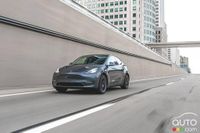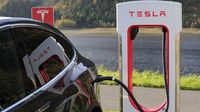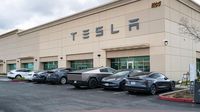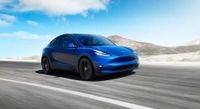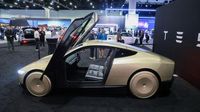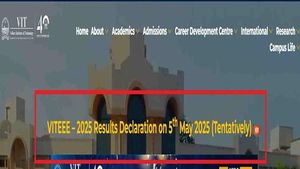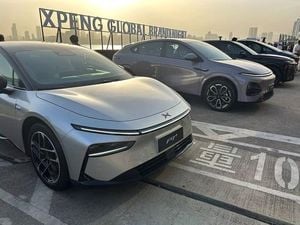Tesla is facing serious legal heat after a California customer accused the EV giant of inflating odometer readings to avoid footing the bill for warranty repairs. The lawsuit, filed by Los Angeles resident Nyree Hinton, claims Tesla used a predictive, algorithm-based system that doesn’t just measure distance; it allegedly exaggerates it. If the case gains class action status, it could potentially impact over a million Tesla owners in California.
According to court filings, Hinton's Model Y’s odometer overstated mileage by up to 15%, causing his basic warranty to expire prematurely. He alleges that Tesla ties warranty limits and lease caps to artificially inflated mileage, effectively boosting repair revenue and forcing early warranty purchases. This discrepancy left him with a staggering $10,000 repair bill that he believed should have been covered under warranty.
Hinton’s complaint highlights a significant concern among Tesla owners. He noted that the odometer readings reflect energy consumption, driver behavior, and “predictive algorithms” rather than actual mileage driven. For instance, he claimed that the odometer on his 2020 Model Y, which he bought in December 2022 with 36,772 miles on the clock, ran at least 15% faster than it should have. At one point, it indicated he was driving 72 miles a day, when in reality, he was only covering about 20 miles.
“By tying warranty limits and lease mileage caps to inflated ‘odometer’ readings, Tesla increases repair revenue, reduces warranty obligations, and compels consumers to purchase extended warranties prematurely,” the complaint states. This allegation raises questions about the practices of one of the largest electric vehicle manufacturers in the world.
Hinton is not alone in his concerns. Other Tesla owners have voiced similar issues on online forums, with many expressing frustration over perceived discrepancies in their vehicles' mileage readings. However, Hinton's case is notable as it is the first to escalate to a court case.
The lawsuit could have far-reaching implications. If it gains class action status, it could encompass more than a million vehicles in California alone. Hinton is seeking compensatory and punitive damages for Tesla drivers, which could lead to significant financial repercussions for the company.
Tesla has not publicly commented on the lawsuit but has denied all material allegations. The company, based in Austin, Texas, does not have a dedicated media relations office, making it challenging to obtain direct responses to inquiries.
This legal battle comes on the heels of other controversies surrounding Tesla. In March 2024, a federal judge in Oakland ruled that drivers accusing Tesla of inflating vehicle driving ranges must pursue their claims in individual arbitrations rather than as a class action. This decision raised eyebrows and prompted discussions about how consumer complaints against large corporations are handled in the legal system.
As the lawsuit unfolds, it will be interesting to see how the courts address the allegations of manipulated odometer readings. Hinton's case may serve as a precedent for other consumers who feel wronged by their vehicle manufacturers.
With Tesla's growing presence in the electric vehicle market, the outcome of this lawsuit could influence public perception and trust in the brand. Consumers are increasingly concerned about transparency and honesty from automakers, especially as electric vehicles become more mainstream.
In the meantime, Tesla owners are left wondering about the accuracy of their odometer readings and the implications for their warranties. The potential for inflated mileage raises significant questions about consumer rights and corporate responsibility.
As the legal proceedings continue, both Tesla and Hinton remain at the center of a heated debate over vehicle reliability and manufacturer accountability. The case serves as a reminder that as technology evolves, so too do the complexities of consumer protection in the automotive industry.
In conclusion, the outcome of this lawsuit could have lasting effects on Tesla's operations and customer relations. As more consumers become aware of the allegations, it may prompt a broader discussion about the practices of electric vehicle manufacturers and their obligations to consumers.
